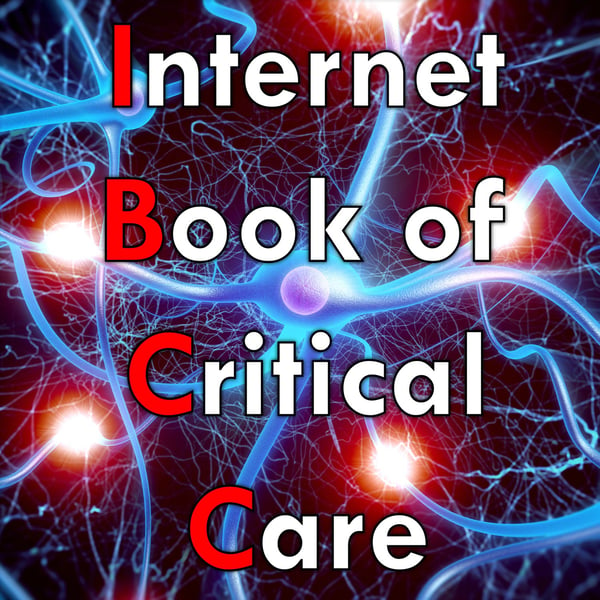IBCC Episode 108 - Toxic Shock Syndrome
The Internet Book of Critical Care Podcast
Adam Thomas
5 • 714 Ratings
🗓️ 23 December 2020
⏱️ 37 minutes
🧾️ Download transcript
Summary
In this episode we cover those super antigens that cause all the trouble with staph and strep infections. Come take a listen around pathophysiology, identification, antimicrobials and all things IVIG.
Transcript
Click on a timestamp to play from that location
| 0:00.0 | So welcome back to the Internet Book of Critical Care podcast. I'm here with Adam Thomas |
| 0:09.1 | and we're going to talk about one of my favorite topics, toxic shocks syndrome. Josh, just in time, |
| 0:12.9 | super sick. I really like this. So today we're going to talk about strep and staff toxic shock |
| 0:17.7 | syndromes. We'll talk about the pathophys, of course, the diagnosis. You're going to take some pot shots at the diagnostic criteria. Then we'll talk about treatments, of course. Let's get straight into this because this is super interesting. Josh, what is more common? Streper staff toxic shock and why is this happening? Because we have patients that have these antigens presenting to their T cells |
| 0:38.0 | and they don't die. So what is the mechanism here? So the mechanism of toxic shock syndrome |
| 0:42.8 | is these super antigens, which essentially attach a T cell directly to an MHC type 2 receptor. And the |
| 0:49.9 | bottom line here is, you know, most antigens will stimulate like 0.1% of T cells, but these super |
| 0:56.0 | antigens kind of like reach directly across and will stimulate like 20 or 30% of T cells and |
| 1:01.1 | just cause the T cells to go completely crazy and it leads this outpouring of cytokines and |
| 1:05.9 | essentially like a cytokine storm. Wait, wait, Josh, you're not allowed to use that term, |
| 1:09.9 | right? I just did. I were a rebel. Cytokine storm. Wait, wait, Josh, you're not allowed to use that term, right? I just did. I were |
| 1:11.8 | rebel, cytokine storm. Okay, if this is causing a cytokine storm because we're activating |
| 1:17.6 | a large amount of T cells, why don't we see this more common with every staff or strep infection? |
| 1:23.2 | So the good thing is that most people have antibodies against this toxin. So as we get older, especially staph toxin, almost all folks will develop antibodies against |
| 1:32.3 | that by the age of 40. |
| 1:33.2 | So staff toxic shock is usually seen in younger people. |
| 1:36.3 | Strep toxic shock, some elderly folks lack antibodies. |
| 1:39.2 | But once again, the vast majority of people will develop antibodies to these superantogens during |
| 1:43.9 | the course of their |
| 1:44.4 | life. Nice. So a really important review here. The basis of this toxic shock syndrome are the super |
| 1:49.7 | antigens. It's not just a regular presentation of T-cell ongoing. The super antigens activate a large |
| 1:56.9 | immune response. And then you go into hyper-inflammatory states. The so-called cytokine storm. |
... |
Please login to see the full transcript.
Disclaimer: The podcast and artwork embedded on this page are from Adam Thomas, and are the property of its owner and not affiliated with or endorsed by Tapesearch.
Generated transcripts are the property of Adam Thomas and are distributed freely under the Fair Use doctrine. Transcripts generated by Tapesearch are not guaranteed to be accurate.
Copyright © Tapesearch 2025.

